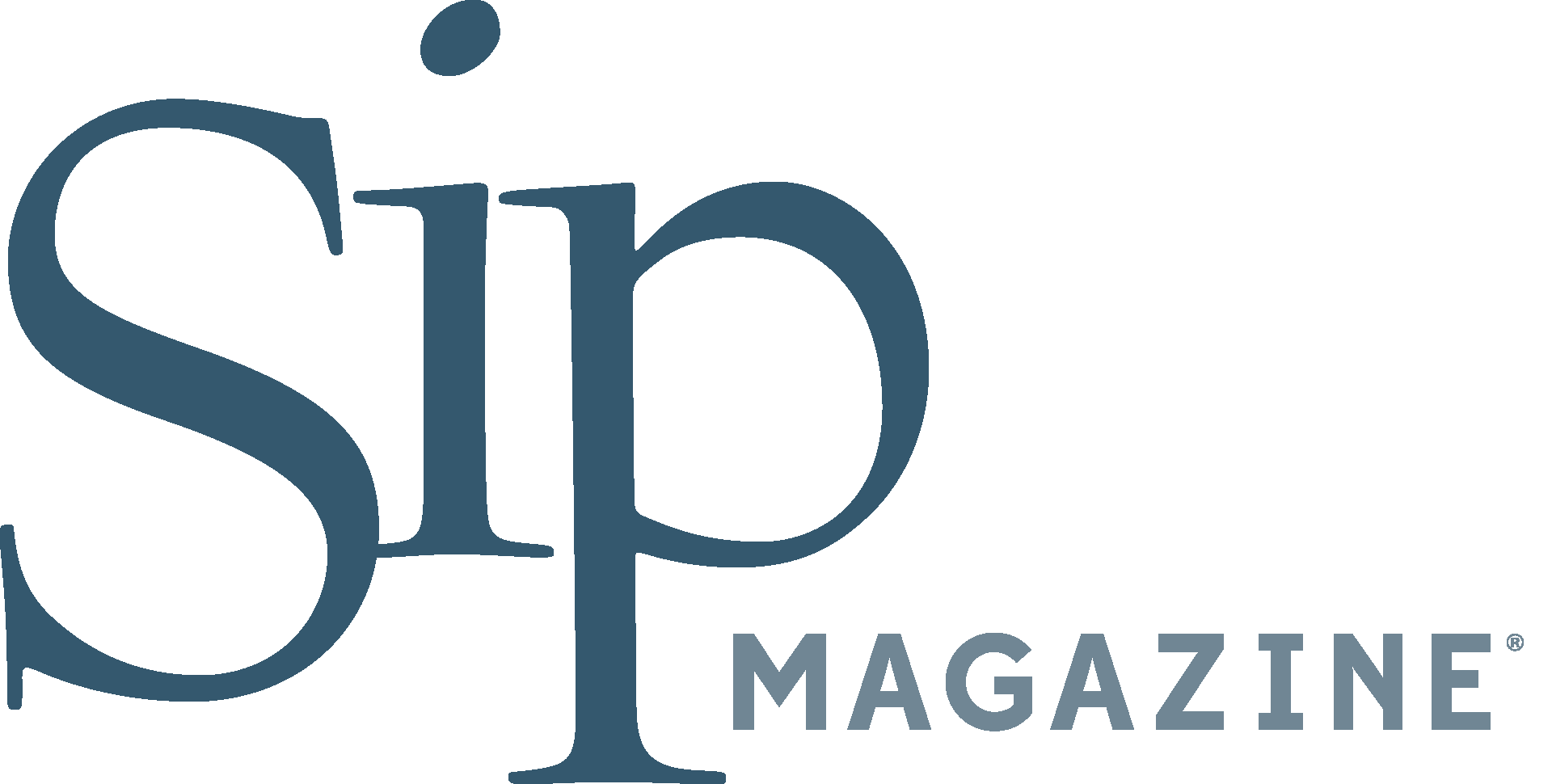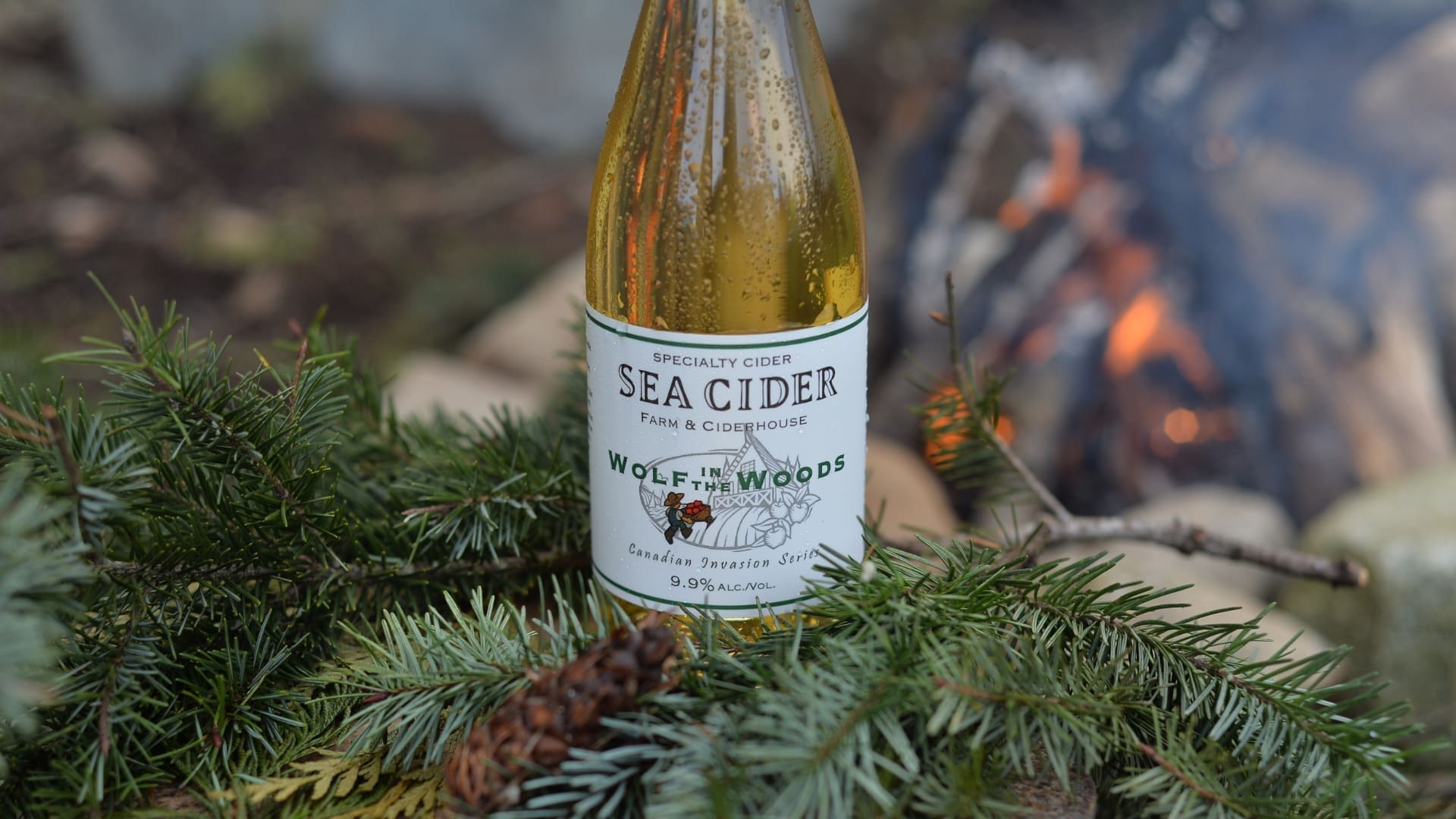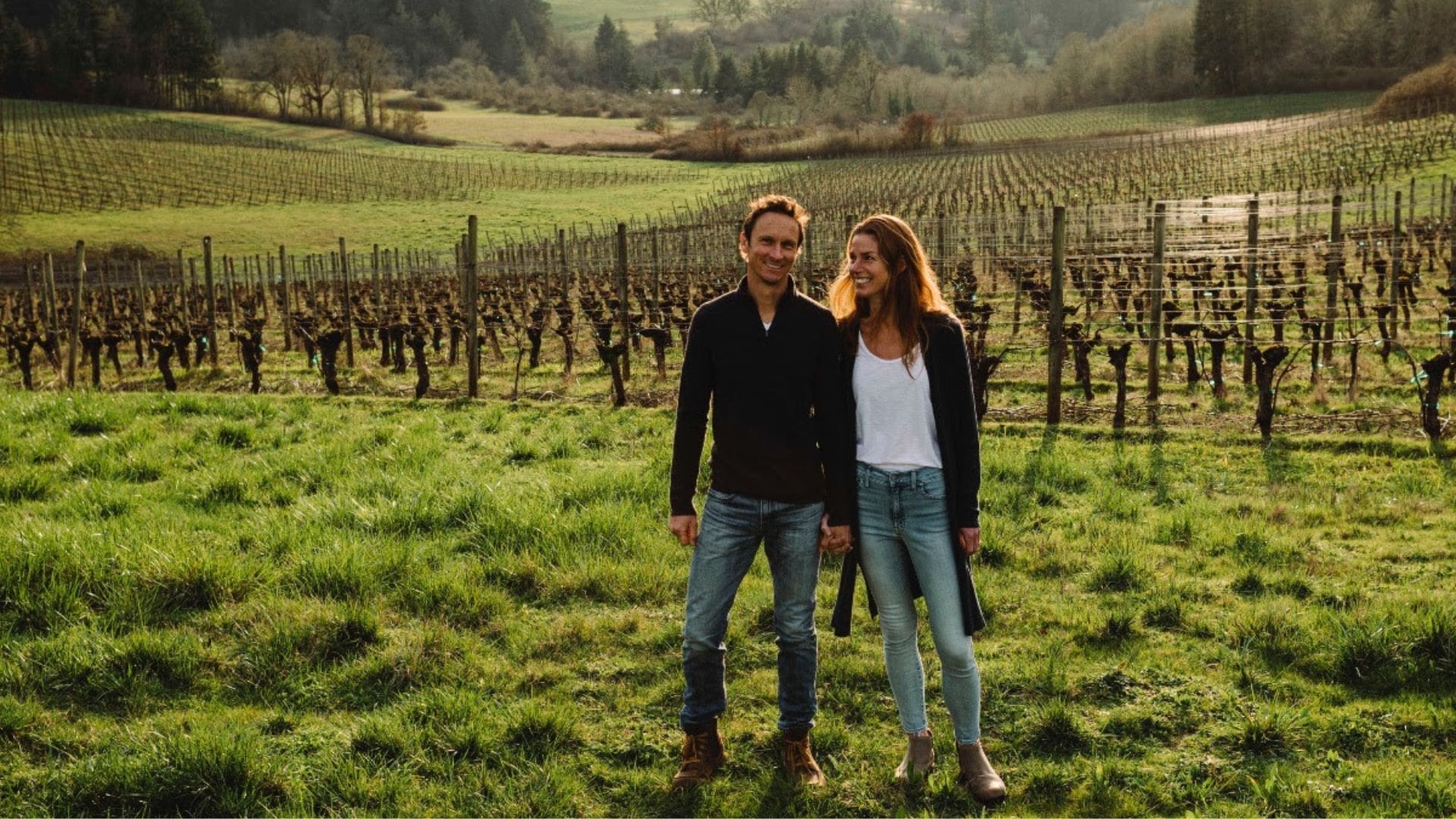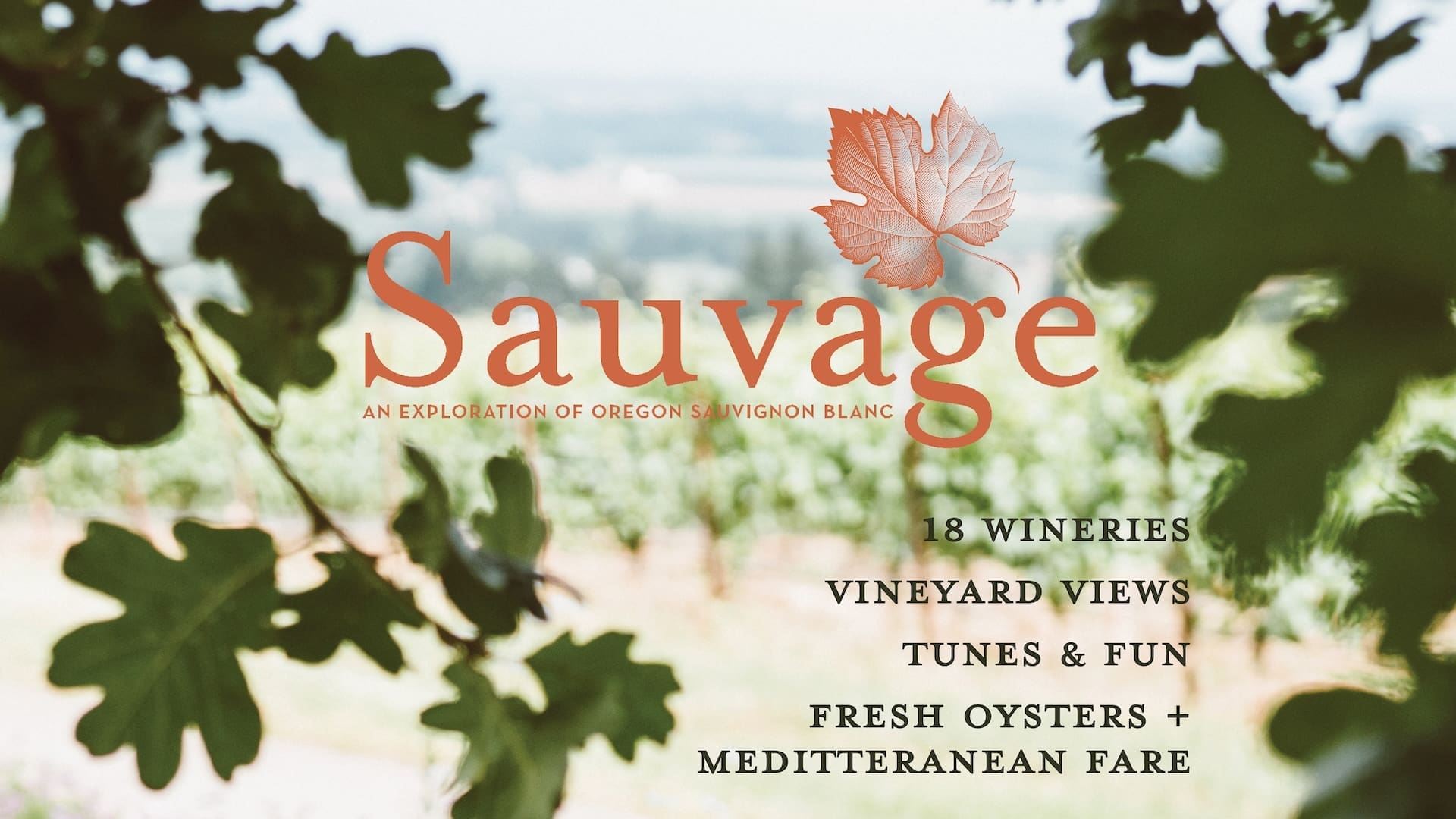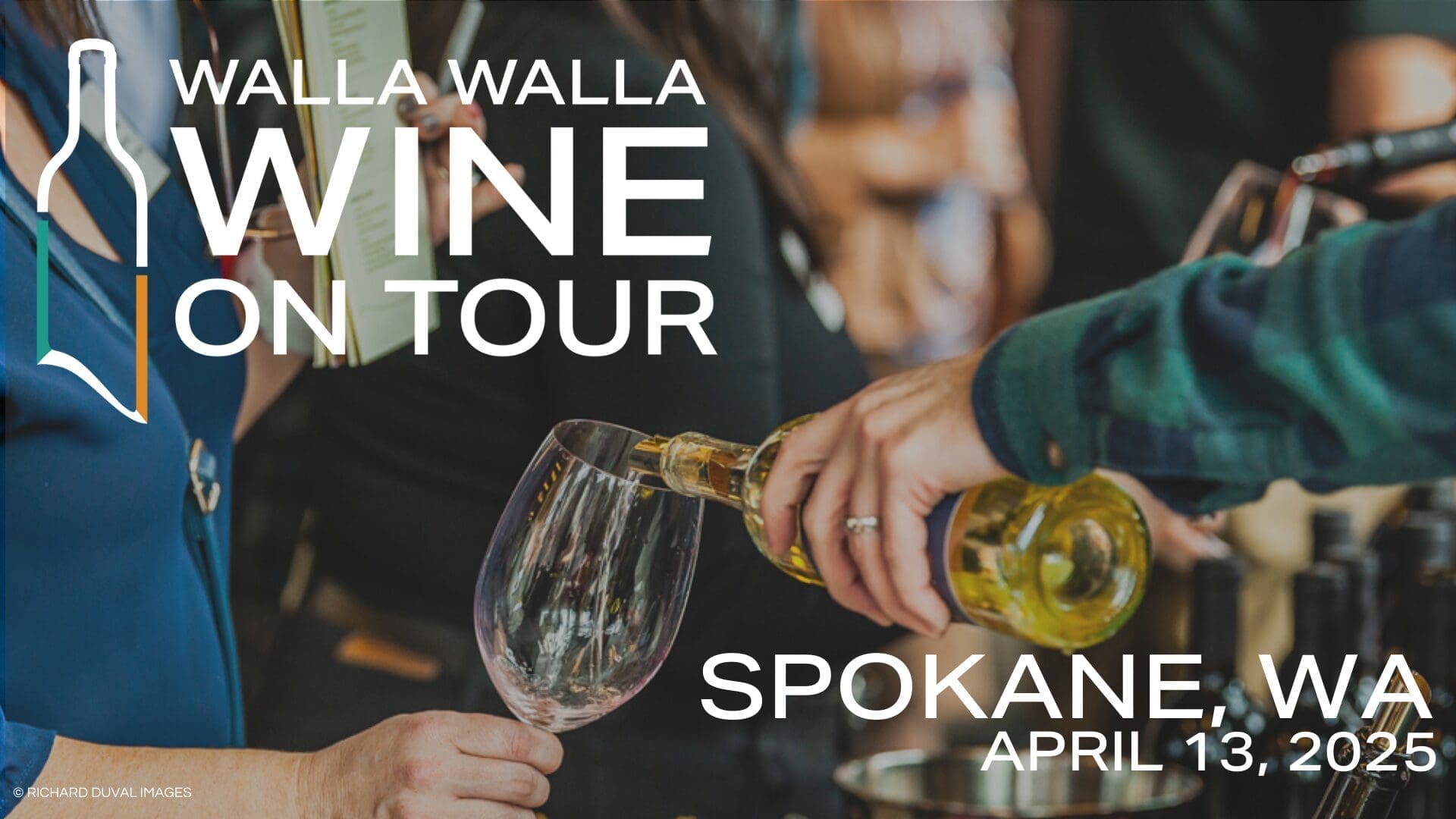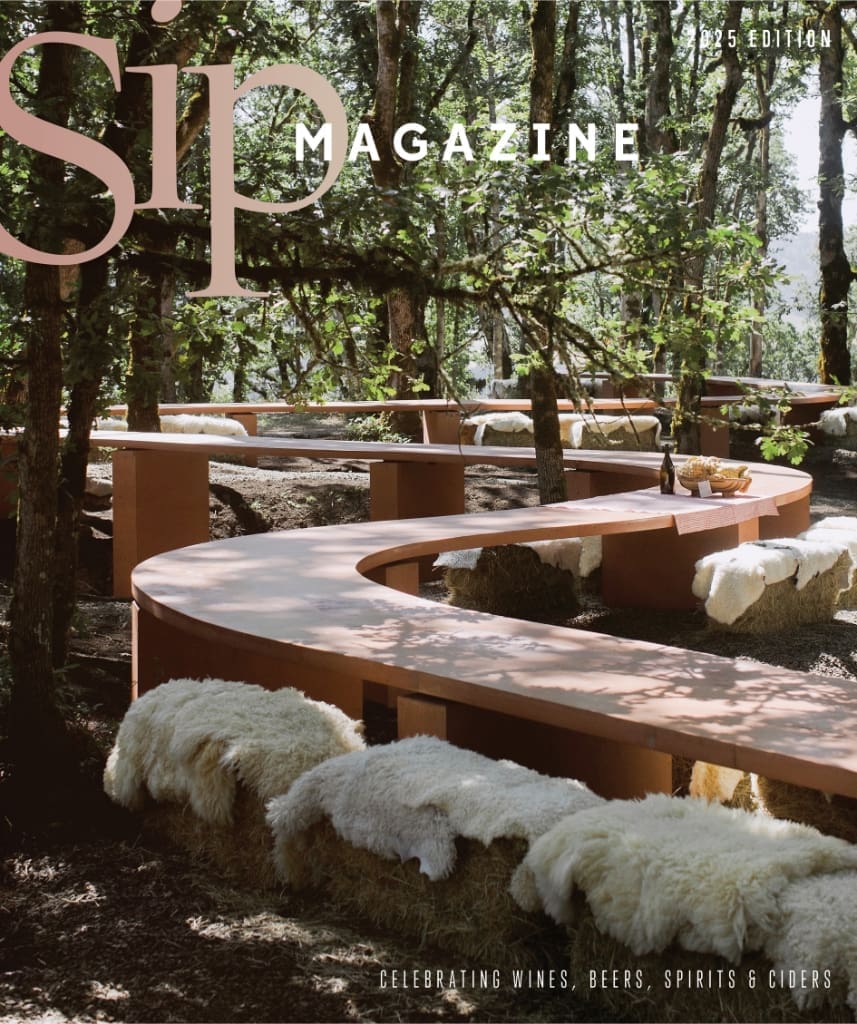Native Flora is an extremely exclusive and eclectic winery nestled up high in Willamette Valley’s glorious Dundee Hills. Owners, business partners and husband-and-wife duo, Scott and Denise Flora follow a heuristic approach to grape growing and winemaking. The work that they do at their secluded hillside winery is hands-on, both figuratively and literally.
At Native Flora, they break rules and are widely regarded as the rebels of the Dundee Hills — an honorific they enjoy. For starters, they are a north-facing vineyard that defies convention as we know it and yet, they get more sunlight, and resultantly, more flavorful fruit that way. They also have eco-mowers who do their job rather fastidiously — 45 head of Southdown Babydoll sheep that stay in the vineyard 365 days a year.
“They are ideal mowers for a properly designed vineyard — self-propelled, all-terrain, mobile composters,” Scott Flora says of his remarkable mowing system. “Besides having a unique trellising system in place, we have to deliver lambs, band tails, tag ears, vaccinate, de-worm, track genetics, invent clever cover crop mixes, and endure a lot of cute. We haven’t mowed in years, have no need for herbicide in-row sprays, and till only when desired. We’re not organic, Tilth, salmon-safe or biodynamic certified and never will be. Our intention has simply been that any of our kids or future grandkids can walk into the vineyard, eat grapes to their hearts’ delight, and we have no worries. None. It’s simple; it’s pragmatic.”
You won’t find any of their exquisite estate wines on store shelves, nor are they submitted for traditional scores — they are available only through the winery’s website. We spoke to winemaker Scott Flora about what it is like to be on the “wrong” side of the hill, work with his better half, and craft the rarest of the rare wines together.
Sip: How were your growing-up days like? What were your earliest forays into the world of wine?
Scott Flora: I grew up about (what used to be) 20 minutes from Napa, Calif., in an Italian family. Wine, friends and fun were weekly events. As a kid, starting in the early 1960s, we spent time camping on Putah Creek, hiking in Mendocino, staying on the Sacramento River, and soaking at the Calistoga Hot Springs. We were in, around, and through the Napa Valley, watching it evolve from almond and fruit orchards into the grape and wine mecca that it now is. Vineyards and wineries became much more commonplace. I’ve always enjoyed wine and started buying as a consumer/collector when I turned 18, which was the legal drinking age in Connecticut. (I was attending Yale.) I started collecting more seriously in my mid-20s. I like to tell people that even though Denise and I will have been married 32 years this summer, I had a cellar long before I had a wife!
Sip: Before Native Flora, you worked helping fix problems with different businesses. How did all that experience help you as a winemaker?
SF: Prior to starting Native Flora, I worked in international businesses primarily as a problem/business solver, or “fixer.” I worked across many industries and in about 85 countries by the time I finished that chapter. We moved from Hong Kong to Oregon in 2000. I had not paid attention to the development of Oregon’s wine country while abroad and was pleasantly surprised by the quality of some wines to be found in the Willamette Valley. While different from the Burgundies in my cellar, I thought they were of equal footing. After exploring a bit, I asked my wife what she thought about starting a “little hobby vineyard.” She thought it might be fun.
Working as a “fixer,” one learns to question the dogmas or axioms of any industry or operation; it makes one a contrarian by nature and a generalist by necessity. ‘We’ve always done it this way because that’s how you have to do it, and you have to do it that way because that’s the way it’s always been done!’ So, when we set out to start a vineyard, it was with the attitude that ‘the rules’ were basically suggested guidelines.
Sip: You’re widely regarded as the rebels of the Dundee Hills — what led to this epithet and what do you think of it? Can you give me an example where you broke the rules for a favorable outcome?
SF: We have become regarded as the “rebels on the hill” largely because we have challenged, and in my mind, disproved a number of the dogmas around growing grapes. Probably the most sacred tenet which we defy is our preferred solar orientation. There seems to be an incontrovertible precept that every vineyard must face south in order to get enough heat to ripen the grapes. Which, when you hear it, makes sense. Until you think about it. Ripening of fruit is essentially the production of sugars, which is powered by photosynthesis, not heat. Sunlight, not warmth, produces carbohydrates. I think everyone missed what happens in the summer as you move north on the planet. If you travel far enough north in Alaska, you will reach a point where the sun doesn’t set for a number of weeks. At our latitude, just north of the 45th parallel, the sun’s shift in the sky is prominent. In the heart of summer, our sun rises in the northeast and sets in the northwest. You actually get more sunlight facing north here in the summer. It’s counterintuitive, but it’s correct. When we planted blocks 6 and 7, which are steep 30% grade, dead north-facing, EVERYONE told us we would never get the grapes ripe. Now, 15 years later, we continue to pick those blocks first or nearly first each year, and we use those blocks to produce a Pinot Noir aptly named The Heretic. Our site, when we started, was considered too high, too wet, and on the wrong side of the hill. We still like it — especially in the face of global warming — but IR radiation absorption and dissipation is another tale.
Sip: How is it working with your wife, Denise? What are the core competencies you both bring to the table?
SF: Native Flora isn’t big, and we don’t want to be. We’re tiny, fun, gorgeous, intelligent and intimate. We produce about 1,800 cases a year right now, with our wine club currently taking over 80 percent of our production. Ninety percent of our business is outside Oregon, which we ship direct. Dallas, Texas, is the only market in which we distribute wines commercially to restaurants; the other 99 percent of our sales are direct to consumers. We know all of our club members, and they know us. I oversee vineyard and winery decisions, and host most of the tastings; Denise runs the business side and keeps me out of jail! She used to run a very large corporation; her attention to detail, coupled with a nearly infallible memory, a penchant for doing everything right, a kind heart, boisterous laugh, and the desire to take care of customers and friends make her very dear to everyone that comes in contact with Native Flora. She endures my storytelling; I marvel at her ability and tenacity. We make a fun, formidable duo!
